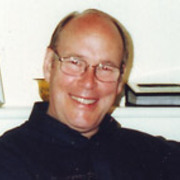
Malcolm Kemp
From the late 1970s to the 1990s, when it came to the challenge of putting live events on television, Malcolm Kemp, MBE, was the man to call. Whether it was a live concert, Top Town shenanigans, or a Commonwealth Games opening ceremony, he had a gift for placing the viewer in the best place to see the action.
At high school in the Hutt Valley, Kemp was a keen trombone player. In his 20s he won a national award, and a place in the Rodger Fox Big Band. It was music that first led him into a television studio, when at the age of 17, a former music teacher asked if he could fill in on trombone for a TV show. Kemp had only seen television shows a handful of times. "I went along to this place with all this equipment, cameras and gear. And as soon as I went in I knew I wanted to work there."
In 1965 Kemp joined the NZ Broadcasting Corporation as a technician, then became a cameraman. He shot royalty, bishops, musicians in the studio, and competitors at the 1974 Commonwealth Games. The work gave him an eye for the power of the close-up, and the long shot.
In the mid 1970s he was turned down for an in-house directors' training course. One senior executive — presumably long departed — wrote "he'll never be a producer". Kemp got his break soon after, when producer Mark Westmoreland asked him to direct some music clips for Ready to Roll forerunner Grunt Machine.
Kemp would go on to direct and produce a run of concerts and events-based shows, commanding election coverage, sports events, the Pacific Song Contest, Mastermind International, NZ Symphony Orchestra specials and five Miss New Zealands, as well as television staples A Dog's Show and This is Your Life. En route he run a line of Feltex Awards, including for live election coverage in 1984, and a 1983 showcase marking the opening of Wellington's Michael Fowler Centre.
Former boss Keith Catchpole, who worked with Kemp for over 15 years, called him "the only director I have worked with who is really competent in multi-camera directing ... a very fast thinker."
Kemp's work ethic, tight planning and love of the word 'complex' became legendary. For one live Telethon show, he pre-scripted the entire 24-hour broadcast.
Kemp went on to become both TVNZ's Head of Entertainment (resurrecting the beloved Top Town in the process), then Head of Sport. He also recognised that a comic sketch as Lyn of Tawa by actor Ginette McDonald had the makings of something more substantial.
In the late 80s Kemp began to look overseas, partly out of frustration over a structure which denied managerial status to those who wanted to keep their hand in producing and directing. Kemp handled America's Cup coverage in San Diego, and spent two years living in Brisbane, where he handled television coverage of World Expo 88.
In 1989 he returned home, to produce and direct coverage of the opening and closing ceremonies of the Auckland Commonwealth Games. TVNZ staff and equipment provided pictures of the ceremony and the games to a large international audience. Kemp was awarded an MBE in 1990, then let for the United Kingdom, after being headhunted by the BBC. Kemp joined the organisation as a sports producer, splitting his time between London and Manchester.
Four years later he was appointed Executive Producer for BBC for the (soccer) World Cup held in the United States. It was one of the highest attended sporting events in the country to date.
In 1997 Kemp became the BBC's executive producer for horse racing. That year he began covering the first of seven Grand Nationals, the year a bomb scare occured.
Kemp's expertise at using multiple cameras to capture live events was utilised for Princess Diana's funeral. Kemp helped organise coverage across a number of broadcasters, working on the day from a broadcast truck in Hyde Park, after successfully lobbying with the police for permission to film in the area. Kemp commanded 64 of 108 cameras. He later called the event "the biggest thing I'd ever done. It wasn't easy at all because we were not able to use a helicopter due to the silence of the occasion". The event reminded him of Sir Keith Holyoake's state funeral in Wellington back in 1983. Kemp was proud that during seven and a half hours coverage, the only technical fault was a single camera going "a bit snowy".
In 1998 Malcolm was an advisor on coverage of the Kuala Lumpur Commonwealth Games; he also directed cover the opening and closing ceremonies. He went on to handle coverage of the 2002 games in Manchester, as director of ceremonies. As a result, he became one of the first New Zealanders to win a BAFTA award, which he described as "the big one for me. It's just terrific".
On 6 April 2004 Malcolm Kemp died from cancer. He was 57. BBC Director of Sport Peter Salmon praised his gifts and confidence as a director. "He has taught a generation of up-and-coming directors, and the many millions who watched the Grand National at the weekend witnessed his legacy."
Profile written by Ian Pryor; updated on 11 February 2022
Sources include
Michael Kemp
Tony Kemp
Doug Coutts, 'Malcolm Kemp remembered' - Onfilm, May 2004 (Volume 21, no 4), page 13
Diana Dekker, 'Kiwi stage-managed Princess' funeral' (Obituary) - The Dominion Post, April 2004
'BBC Sport Executive Producer dies' (Press release) BBC website. Loaded 6 April 2004. Accessed 8 October 2020
Writer unknown, 'Kemp returns' - The Evening Post, 9 March 1989